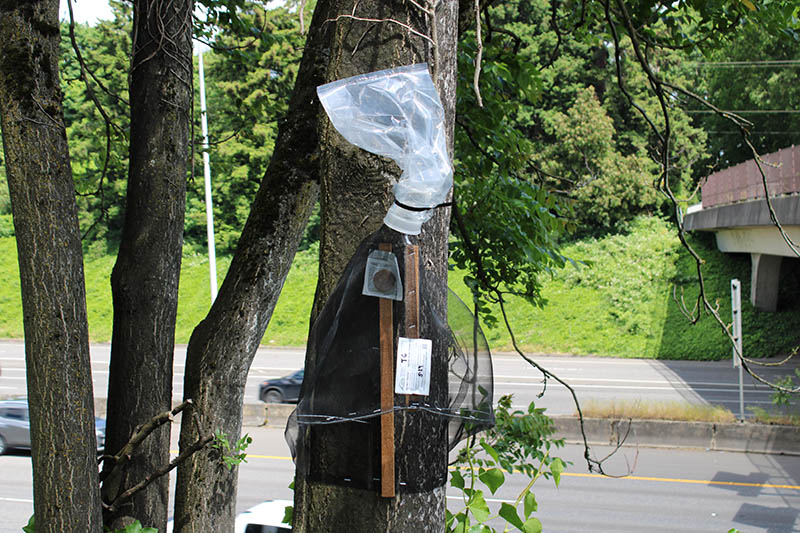WSDA places traps on both public and private property in conducting trapping programs. As much as possible, WSDA places traps on public property. Before placing a trap on private property, WSDA attempts to gain the permission of the property owner. If the owner is not at home, the trapper will leave a door hanger or flier at the residence, explaining 1) why a trap has been placed on their property, 2) where the trap has been placed, and 3) giving a telephone number to call for answers to further questions.
Below are paragraphs from the Revised Code of Washington, which authorize WSDA’s trapping and eradication programs:
Below are paragraphs from the Revised Code of Washington, which authorize WSDA’s trapping and eradication programs:

